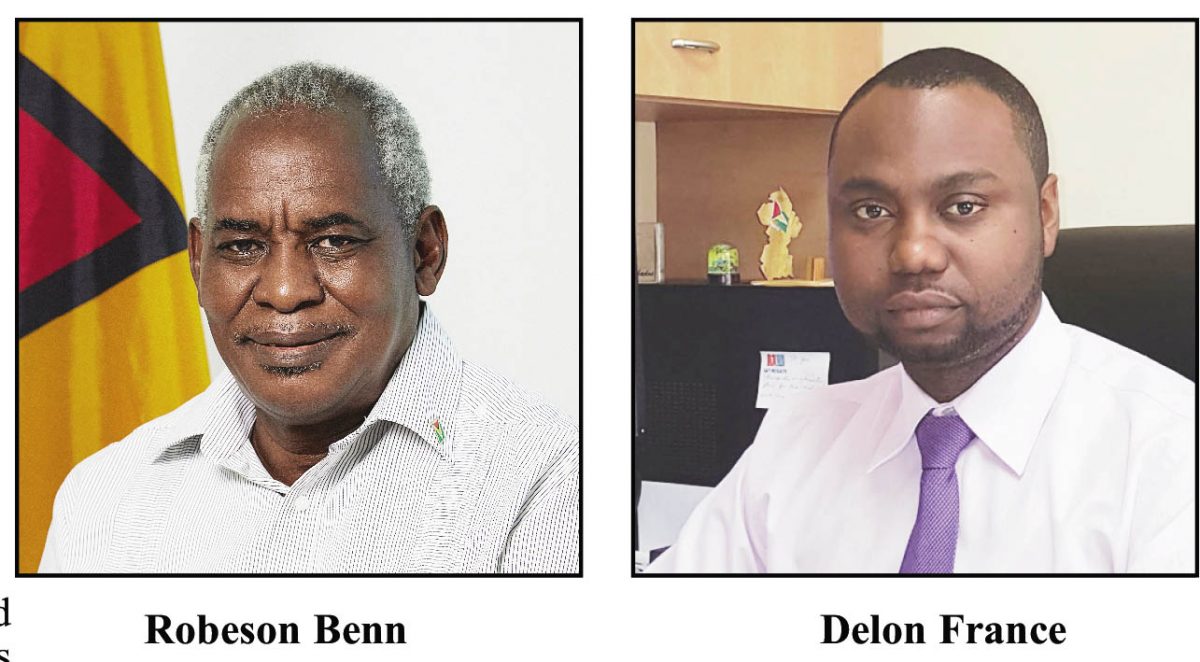The Guyana Forensic Science Laboratory (GFSL) will receive a DNA analysis workflow system in the coming months and samples will no longer be sent overseas for testing.
“…….I want to announce….we have paid for a new machine and we will shortly, within a couple of months……be in a position to do our own DNA testing here in Guyana at the Guyana Forensic Laboratory and that we wouldn’t have the time and the wait to get DNA overseas and maybe we might have a way of burial for particular cases were bodies or remains are still in waiting,” Minister of Home Affairs Robeson Benn recently announced.
Benn made the disclosure while speaking at the Criminal Investigation Department’s annual Christmas luncheon and awards ceremony as he acknowledged that the police force has had “some” challenges in the area.
In June 2019, the GFSL commenced DNA testing following the acquisition of a key piece of equipment.
The DNA testing equipment and a Gunshot Residue (GSR) testing device, together costing US$465,000 were sourced from an Italy-based company through funding from the Inter-American Development Bank (IDB).
During a telephone interview with Stabroek News yesterday, Director of the GFSL, Delon France explained that while that equipment still exists, it could no longer be used since the manufacturer had stopped the production of reagents for it. “It’s not that the machine can’t function. It could but the manufacturer stopped the production of reagents,” France said.
The system is expected to enhance Guyana’s DNA testing capability and assist in criminal investigations.
And, according to France, samples would no longer be sent overseas. “We wouldn’t because with the new machine it’s a whole entire workflow system. We call it the traditional system,” he said.
DNA testing has been a vital aspect of the police investigation into many criminal cases.
Prior to the construction of the GFSL, samples had to be sent overseas for testing. In the majority of cases, there were delays in receiving the results for as long as months or even years
France told this newspaper because of the cost attached to overseas testing, “very few” DNA tests were being done. “We had to really pick out and know what to send out,” he said.
The cost for the DNA analysis system was not immediately available.
Earlier this month, Parliament’s Committee of Supply approved $50.5 million for the provision of additional resources to support the GFSL, specifically for the acquisition of a DNA equipment.
Four-stage process
France explained to Stabroek News that DNA enhancement is a four-stage process which includes identification, amplification, extraction and profiling.
He said the DNA machine which was acquired back in 2019 was capable of carrying out all of these functions. However, he noted that the new DNA workflow system will consist of four different pieces of equipment. “What we are getting right now is four different pieces of equipment that does each stage separately. Rather than have it combined into one machine,” France said.
One of the components, France explained is a protein extractor. “Which basically extracts protein from any matter that contain protein. Whether bones or blood and then we go through the identification and then amplify,” he said.
“The machine that we have don’t do that sort of extraction so that is one of the plus of having the new machine….We are having difficulty with those bones, especially bones from bodies that would have decayed for maybe months….Those are very difficult,” France further explained to Stabroek News.
While the GFSL possesses the staff with knowledge of DNA testing, France said they will be trained in the new year on how to operate the new machine. “This new training would basically be just to show us how to use the new equipment because we already have knowledge what DNA is about, how to do certain things regarding it,” he said.
“They do have the knowledge of how to do DNA testing, interpreting of the results and so on. It’s just a matter how to use these new stuff that comes,” France added.
The DNA testing entails comparison with or matching evidence to a suspect, family testing – where the family’s DNA can be used to identify a suspect, even if the suspect’s DNA is unavailable – and paternity testing.
Cheek cells, semen, vaginal secretions, hair, blood and touch DNA are among the samples that can be collected and submitted for testing.
The GFSL was commissioned in 2014 with four departments – toxicology, documents, trace evidence and Chemistry and six non-analytical departments – security, quality system, information system, facilities operation, evidence and administration.






